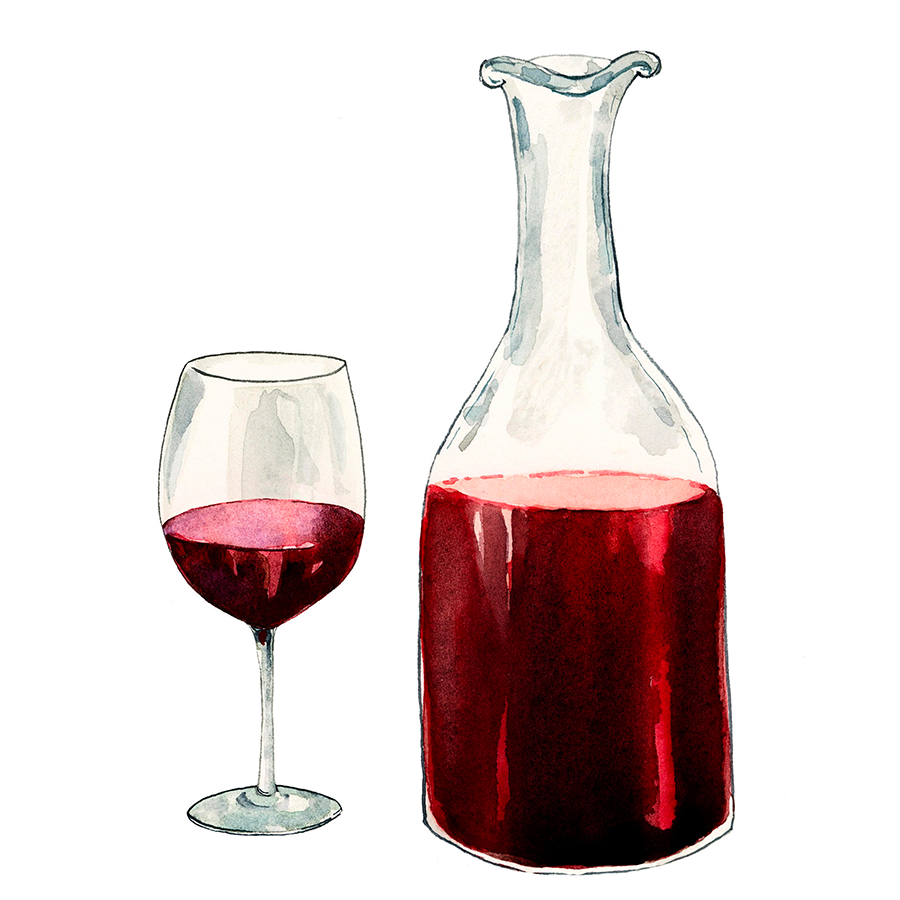Waste not, want not
Author: Barbara Drew MW

What’s the best way to store opened bottles of wine? And when is it time to relinquish the contents of an open bottle to the sink? Barbara Drew MW explains.
In my experience, the wine world divides neatly into two groups.
There are those who endlessly worry about how to store half opened bottles of wine. They experiment with teaspoons and stoppers, with the diligence of a researcher mapping the effects of the next potential wonder drug. They scour recipes based on the volume of wine they might need, and have freezers filled with wine ice cubes.
The other group are those who are guaranteed, when the topic of preserving opened bottles of wine ever comes up in conversation, to say, “Never a problem I have”.
For the latter – bravo (though may I recommend making homemade wine vinegar nonetheless? It requires patience, and a moderately strong stomach when it doesn’t quite go to plan. But it is, I would argue, well worth it).
To the former, fear not. Wine, it turns out, is not nearly as fragile as one might fear. In fact, it can be stored quite happily for days once open, if you take a few precautions.
To understand why, let’s first explore what happens to wine once the bottle has been opened.
Oxidation and its effects
When a bottle of wine is opened, oxygen enters and slowly starts to alter the wine. Sometimes, this is beneficial. Speeding up the ageing process of a young, tannic red wine, by exposing it to oxygen in a decanter before serving, can highlight complexities and subtly soften tannins.
Overall, there are three things that happen when a wine is exposed to oxygen. Firstly, the aromas and flavours will change. Fresh fruit and herb flavours will start to become ever-so-slightly baked in nature, and a hint of nuttiness will start to overlay these. After some time, the aromas will also gradually start to dull, becoming harder to discern.
Secondly, the texture of the wine will change. If it is a red wine, the tannins will start to join together and become softer and smoother. This process happens over years, if not decades, in an unopened bottle, but can happen a touch quicker in an open bottle.
Finally, the colour of a wine will change. White wines will start to turn a little more golden, before taking on a touch of amber and finally brown. Red wines will start to lose their bright purple or raspberry colour and instead take on a hint of garnet. Again, they will eventually degrade into a brown colour. These changes happen far more slowly than changes to the flavour or texture, and will only be noticeable a week or more after the bottle has been opened.
Extending the drinking window
How fast these different processes occur depends very much on how much oxygen is in the bottle, and also the temperature. Chemical reactions invariably speed up when it is warmer, and slow down when it is cooler. This means that storing any open bottle of wine in the fridge, no matter the style, will automatically extend its drinking window. This applies even to open red wines. Simply remove them from the fridge half an hour before serving, to allow them to warm up slightly.
Minimising oxygen in the bottle is a little trickier, but there are a few options at your disposal. Firstly, vacuum systems that remove oxygen from a bottle of wine and then seal it are generally effective at extending the shelf (fridge) life of a bottle by a day or two. Other options use inert gas to form a blanket over the surface of the wine. And of course, reducing the overall amount of oxygen in a bottle can also be achieved by simply decanting the wine into a smaller vessel – an empty drinks bottle, for example.
Ultimately, the question of how long you can keep an open bottle of wine is similar to another age-old wine questions: when is my wine ready to drink?
It is personal. Some drinkers will be able to detect a slight loss of complexity in their favourite wine a mere 24 hours after it has been opened. However, the vast majority of us will take far longer to notice any serious deterioration in the quality of an open bottle.
Minimising oxygen contact and chilling the wine will slow down the deterioration further, meaning you’ll have between two and four days to finish up your open bottle. After that… there’s still the option of homemade vinegar.
Read more of our tips around wine in our Wine School articles here.


